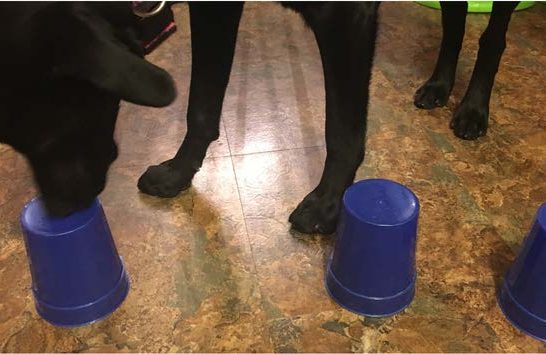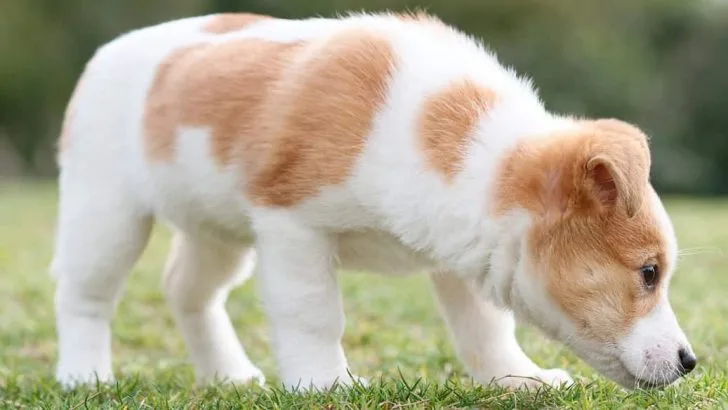
Alright, you have a puppy. You’ve heard over and over that you can’t over-exercise your energetic puppy because their joints and bones are still developing. But your puppy is driving you nuts with all that energy. You don’t want to keep them in a crate all the time. So, what do you do now?
You know your puppy needs mental games. Did you know you can engage your puppy’s whole brain? One-eighth of your puppy’s brain is dedicated to smell. Imagine how mentally tiring that can be! Yes, you can wear out your puppy this way!
What if your puppy is going to be a future Obedience or Agility champion? Should you let your puppy learn to sniff? Absolutely! Dogs that sniff during competitions do so because they’re stressed, not because they’ve been allowed to sniff before. So, there’s no harm in letting your puppy do what comes naturally. In fact, these exercises might even help them with scent detection in the future.
These games will also build skills your puppy will need if you decide to train them for Nosework. In Nosework, the dog learns to find a Q-tip scented with an essential oil chosen by the sport organization—like Birch, Anise, Clove, or Cypress for the AKC. (If you think your puppy has a future in Nosework, it’s best to start with Birch.)
The best part is, you don’t need anything fancy to get your puppy’s brain working—you can use things you already have at home. A tea bag is perfect for this. Just make sure the tea is caffeine-free.
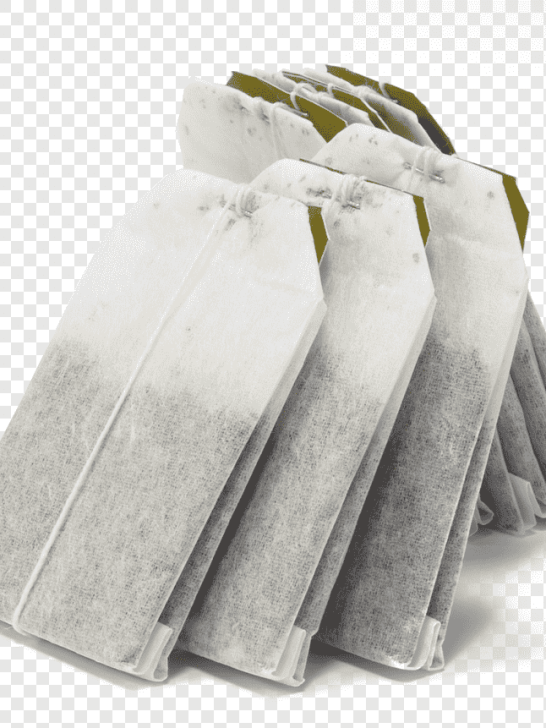
The first thing to do is hold the tea bag in one hand and the treats in the other. When your puppy sniffs the hand with the treats, just wait. Don’t scold or move your hand. Eventually, your puppy will sniff the hand with the tea bag. When she does, say your marker word (often “Yes”) and give her a treat close to the tea bag.
This process is called “Imprinting,” similar to how detection puppies are trained. Detection puppies might use pipes with holes for delivering food, but the idea is the same, and tea bags are much cheaper!
Keep practicing, occasionally switching hands, until your puppy learns that she should sniff the hand with the tea bag. She’ll catch on quickly!
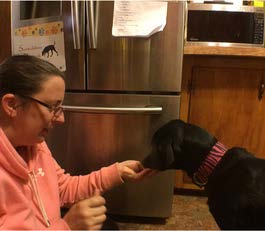
Once your puppy gets it, the next step is to put the tea bag in a small box. Gift boxes work great. The opening of the box encourages what’s called a “passive” indication, where your puppy waits patiently. Using small boxes also gives your puppy a good socialization experience and helps build her confidence!
Start with just one box. When she sniffs the box with the tea bag, say “Yes” and reward close to the tea bag. Notice how the box shapes her behavior?
Soon, your puppy will be eager to find the box. Now, let’s make it more challenging. Add two empty boxes and let her figure out which one has the tea bag. Don’t forget to reward her for her effort. This is when your puppy really starts using her sense of smell.
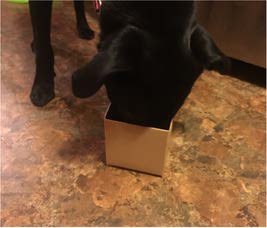
target odor (tea bag)
She might guess at first, and that’s okay. She’ll learn quickly.
Now, your puppy is not only using her nose but also figuring out which box has the tea bag. This gets the rest of her brain involved. Keep these sessions short. If your puppy seems tired, take a break and play with her, or try the exercise again later. Puppies learn fast, but it’s important not to overwork them.
The last step is to start hiding the “hot” box. We call a box “hot” when it has the tea bag inside. You might want to mark the box with an “H” so you remember which one has the scent. Important: Never use a box that once had a scent (“Hot”) as a box without scent (“Cold”).
When you begin hiding the Hot box, keep it simple and in plain sight. Soon, your puppy will be excitedly searching for the box! Keep the searches short, around 15 to 20 seconds, to maintain your puppy’s interest. If it’s taking too long, make the hide easier. The goal is to keep your puppy feeling successful!
Now you’re ready for more advanced searches. Whether or not you continue with Nosework, you’ve got a game that will engage your high-energy puppy’s mind, tire her out, and keep her thinking for years to come! Enjoy, and keep it fun!
